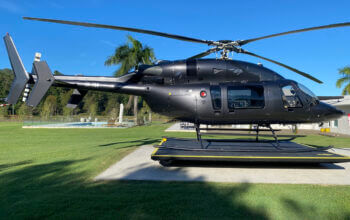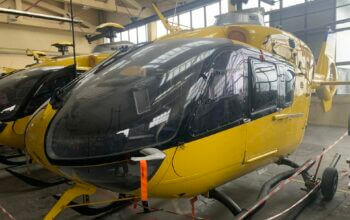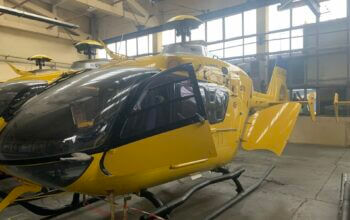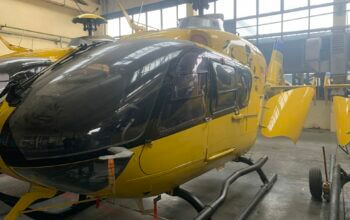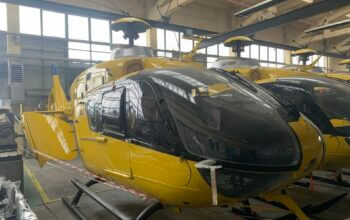Estimated reading time 10 minutes, 38 seconds.
The U.S. Department of Commerce dealt a potentially crippling blow to Canadian aerospace on Sept. 26, when it issued a preliminary ruling that will see anti-subsidy duties of more than 219 per cent levied on Bombardier C Series aircraft sold to operators south of the border.
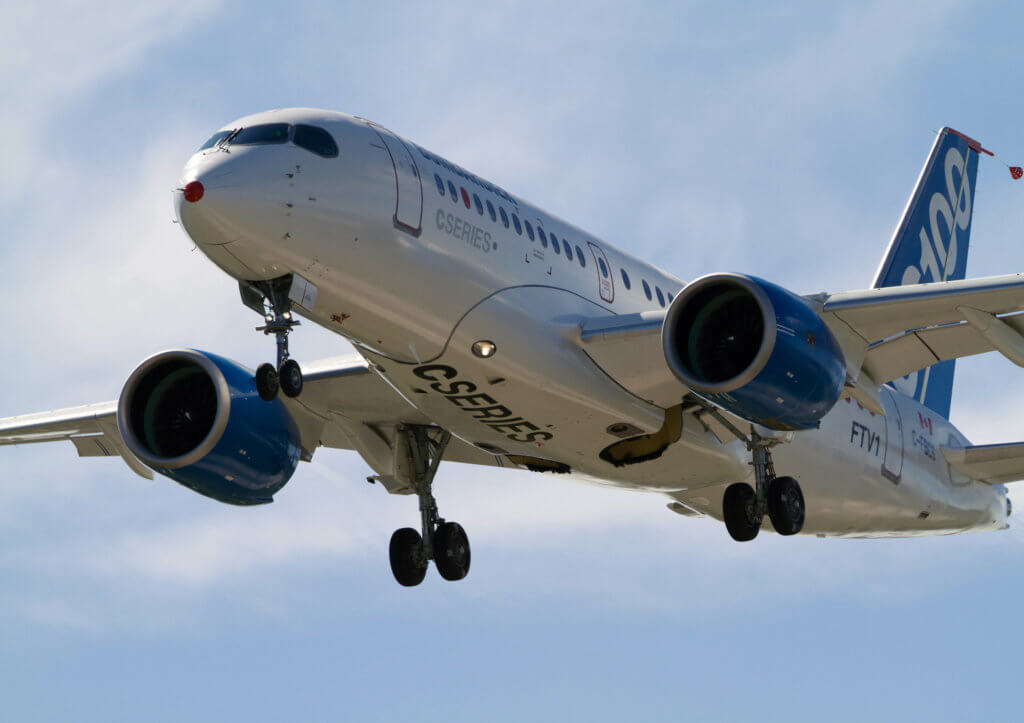
It’s the latest roadblock faced by Bombardier Aerospace as it strives to achieve widespread market penetration for its cutting edge C Series airliner, variations of which are currently in service with Swiss and AirBaltic.
In response to a petition filed by The Boeing Company on May 18, 2017, the U.S. Department of Commerce said on Tuesday it recommended imposing a 219.63 per cent countervailing duty on the aircraft after it made a preliminary finding of subsidization, Reuters reported.
The finding has major implications on Bombardier’s April 2016 deal with Delta Air Lines for 75 CS100 aircraft, with an option for 50 more. The deal was heralded as a major coup for the Montreal aircraft manufacturer in its efforts to break into the lucrative U.S. market.
But Boeing claims that Bombardier sold C Series jets to Delta at “absurdly low” prices, dumping them into the U.S. market at heavily discounted rates made possible by unfair subsidies from both the Quebec and Canadian governments.
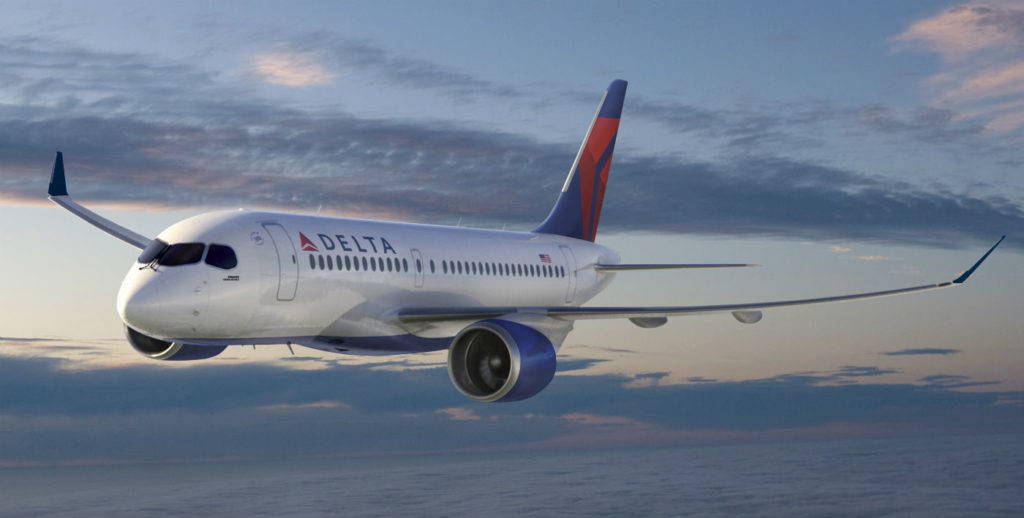
Quebec invested $1 billion last year in exchange for a 49.5 per cent stake in the C Series. Ottawa followed up in February 2017 with $372.5 million to support the C Series as well as Bombardier’s Global 7000 business jet program.
“Propelled by massive, supply creating and illegal government subsidies, Bombardier Inc. has embarked on an aggressive campaign to dump its C Series aircraft in the United States,” Boeing said in its petition to the U.S. Commerce Department.
Bombardier called Boeing’s position hypocritical, noting that the Chicago-based manufacturer does not even offer a similarly-sized jet to compete with the C Series.
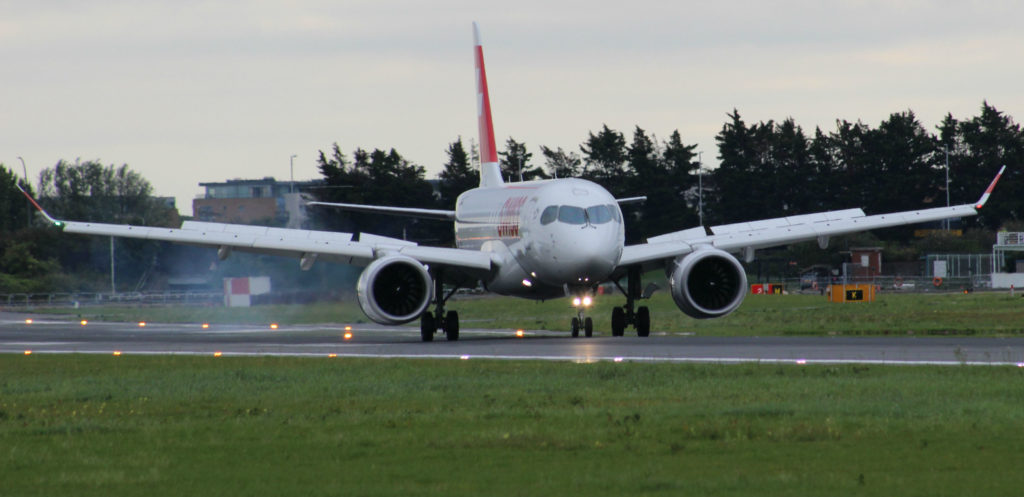
“Delta ordered the C Series because Boeing stopped making an aircraft of the size Delta needed years ago,” said a Sept. 18 statement posted on the Bombardier website. Furthermore, the Canadian firm said discounted launch prices are a common practice employed by all manufacturers when trying to gain a market foothold for any new aircraft.
Boeing’s “self-serving actions threaten thousands of aerospace jobs around the world” and the U.S. government should rejects its efforts to “tilt the playing field in its favour,” concluded the Bombardier statement, issued prior to the release of the preliminary ruling.
Contentious Issue
The trade dispute has been thrust into the global limelight, attracting attention from international governments, associations such as the Business Council of Canada, and airlines themselves, including JetBlue Airways Corp., which urged U.S. regulators to reject the Boeing petition in the interests of establishing “free and unfettered competition in the aircraft manufacturing sector.”
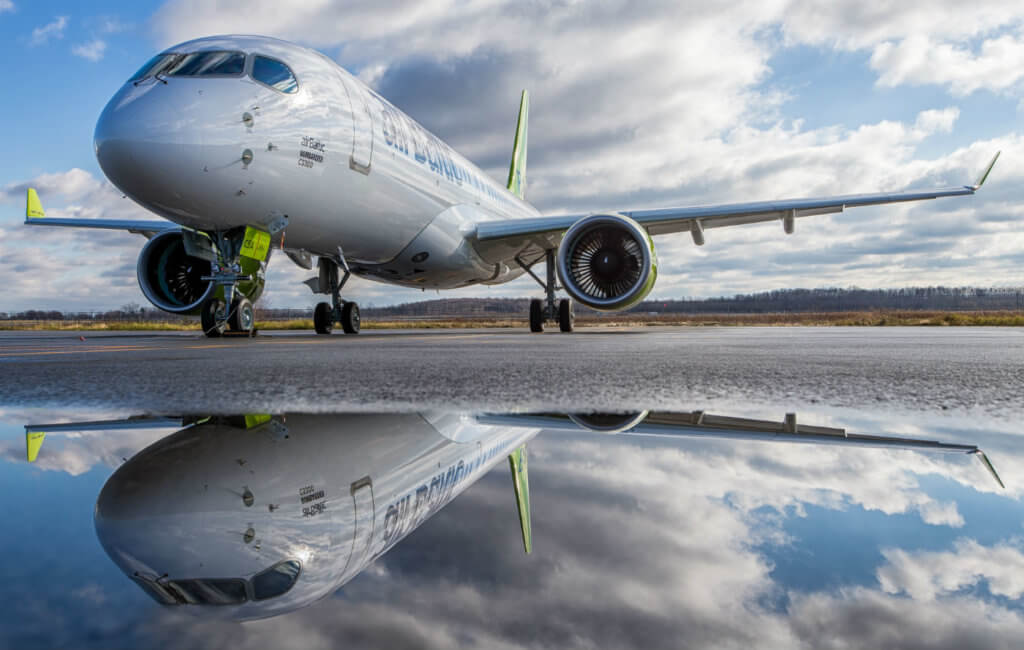
U.S. operators Spirit Airlines Inc. and Sun Country Airlines Inc. also joined the fray in support of Bombardier, as has the Canadian government.
Prime Minister Justin Trudeau said on Sept. 18 that Ottawa will not do business with Boeing as long as the company is “busy trying to sue us and put our aerospace workers out of business.”
He was referring to Canada’s stalled plans to purchase 18 interim Boeing Super Hornet fighter jets. The jets are supposed to augment Royal Canadian Air Force capabilities while an open competition is planned for the near future, to determine the eventual replacement aircraft for the full fleet.
Boeing responded that it was not suing Canada and that the matter is merely a “commercial dispute” with Bombardier.
Meanwhile, British Prime Minister Theresa May added her voice in support of the Canadian OEM, which employs around 4,000 people at its factory in Northern Ireland.
Despite having built a cutting-edge product that has outperformed its original targets and received glowing reviews from pilots and passengers alike, Bombardier’s C Series now faces another hurdle in the form of significant important tariffs that could endanger its future with Delta Air Lines and sabotage future U.S. sales.
Then there’s the issue of thousands of global aerospace jobs that are inextricably tied to Bombardier’s success–including more than 7,000 American workers at 37 facilities across the U.S. alone, according to the company’s website.
A final ruling on the matter is not expected for at least six months, but Boeing was triumphant after Tuesday’s preliminary finding.
“Subsidies enabled Bombardier to dump its product into the U.S. market, harming aerospace workers in the United States and throughout Boeing’s global supply chain,” the company said in a statement quoted by The Canadian Press.
The C Series dispute has “everything to do with maintaining a level playing field and ensuring that aerospace companies abide by trade agreements,” said Boeing.
Boeing had asked for only an 80 per cent duty, and the Commerce Department’s decision was met with significant concern within Canada’s aviation and aerospace industries.
“This is a cynical and short-sighted move by Boeing, and could have a long-term impact on the industry in both countries,” said Unifor national president Jerry Dias in a statement.
“The fact is, governments invest in this industry because it is a source of good jobs and brings innovation and technological advances to the country that are felt across the economy,” he added.
“We urge the federal government to push back against these duties and to stand by its right to invest in advanced industries that provide greater opportunities for future generations.”
Unifor is Canada’s largest union in the private sector and represents more than 10,000 aerospace workers.
Suzanne M. Benoit, president of Aero Montreal, said her organization believes the decision to impose countervailing duties on Bombardier will “create uncertainty and adversely affect the competitiveness of the aerospace ecosystem.
“On behalf of the aerospace cluster, Aéro Montréal is asking the parties involved to resolve this issue as quickly as possible,” said Benoit in a statement.
A second preliminary ruling scheduled for Oct. 4 will explore whether Bombardier sold its CS100s below cost, effectively “dumping” them into the U.S. market.
The U.S. International Trade Commission (ITC) is also exploring the question of whether Bombardier’s deal with Delta Air Lines hurt Boeing.
That ruling, expected in the spring of 2018, will be the key to whether any duties applied to the CS100s become permanent, or whether the case is dismissed.
An appeals process could see the matter come before the U.S. Court of International Trade, NAFTA dispute bodies, or the World Trade Organization.
“We strongly disagree with the Commerce Department’s preliminary decision,” Bombardier said in a statement posted to its website.
“The magnitude of the proposed duty is absurd and divorced from the reality about the financing of multibillion-dollar aircraft programs. This result underscores what we have been saying for months: the U.S. trade laws were never intended to be used in this manner, and Boeing is seeking to use a skewed process to stifle competition and prevent U.S. airlines and their passengers from benefiting from the C Series.
“The simple truth is that Bombardier created a superior aircraft that is more efficient, more comfortable, and quieter. The C Series serves a market segment not supported by any U.S. manufacturer. Delta wants to bring this remarkable new aircraft to the U.S. flying public. Boeing wants to prevent U.S. passengers from realizing these benefits, irrespective of the harm that it would cause to the U.S. aerospace industry and the cost to airlines and consumers.”
Bombardier noted the ITC will determine next year whether Boeing suffered any injury from the C Series.
“Because Boeing did not compete at Delta and because Boeing years ago abandoned the market the C Series serves, there is no harm,” said Bombardier.
“There is wide consensus within the industry on this point, as well as a growing chorus of voices, including airlines, consumer groups, trade experts, and many others who have come forward to express grave concerns with Boeing’s attempt to force U.S. airlines to buy less efficient planes with configurations they do not want and economics that do not deliver value.”
Bombardier’s statement closed by urging the U.S. government to “reject Boeing’s attempt to unfairly tilt the playing field in its favour and to impose an indirect tax on the flying public through unjustified import tariffs.”
